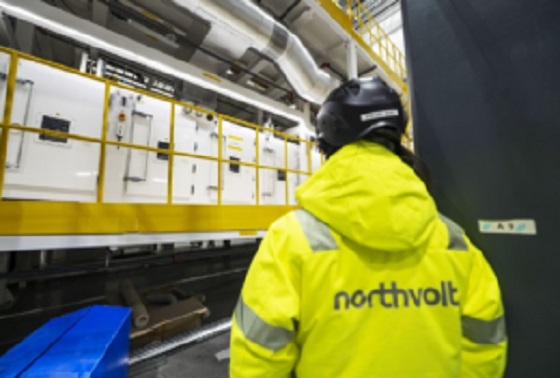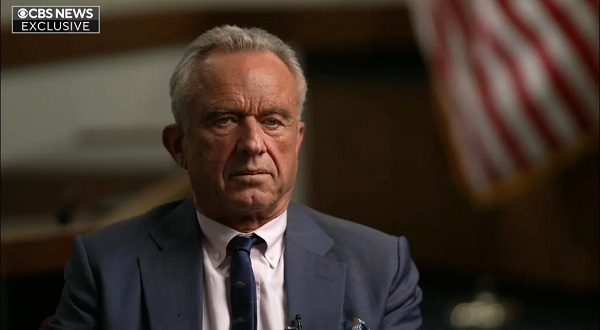Automotive
The Northvolt Crash and What it Says About the State of the Electric Vehicle Market

From Energy Now
By Jim Warren
Northvolt, a wannabe electric vehicle (EV) battery manufacturing superstar, based in Sweden filed for Chapter 11 bankruptcy protection in the US on November 21, 2024. In just eight years the company had blown through $15 billion USD in startup capital. Bloomberg says it was one of the most indebted companies to file for bankruptcy in the US in 2024.
Northvolt promised to be everything green transition crusaders could hope for in a company. And it isn’t surprising the “whiz kids” in the Prime Minister’s Office and the environment ministry made sure Canada got in on the action. According to Bloomberg, Canada made pledges amounting to $7.3 billion CAD ($5.4 billion USD) in loans, equity stakes and subsidies for Northvolt.
Canada’s investments included support for the construction of four electric vehicle (EV) battery factories—one in B.C., two in Ontario and one in Quebec. As of today, only a cockeyed optimist could believe those four plants will be churning out batteries any time soon, if ever.
Northvolt was supposed to be a cutting-edge EV battery innovator. It had the cachet of companies claiming to be implementing next-generation technology. When the company was launched in 2016 it was hailed as Europe’s flagship entry into the international race to produce enough non-Chinese batteries to support a widely anticipated boom in electric vehicle demand in Europe and North America.
For eight years Northvolt rode the wave of green propaganda that accompanied government regulations phasing out the production of vehicles with internal combustion engines. The company further endeared itself with environmentalists by claiming it would be at the forefront of development for the mammoth batteries required to back up solar and wind power generation.
The Economist reports that prominent Wall Street players like BlackRock, Goldman Sachs and JPMorgan Chase ditched any aversion they might have had for getting into business with governments. They contributed to the $15 billion in startup money. Governments got on the Northvolt band wagon. Northvolt received $5 billion USD in grants from five countries: Canada, the European Union (EU), Poland, Germany and of course Sweden.
Private investors weren’t deterred by the fact governments had “picked a winner.” They actually liked the fact governments were backing Northvolt. They assumed the governments of wealthy countries dedicated to Net Zero by 2050, would patiently nurse Northvolt through its growing pains and back it financially when setbacks arose. Risks would be minimized—success was as close to guaranteed as anyone could hope to expect.
Governments in Europe as well as Canada had been busy implementing policies designed to reduce CO2 emissions and combat climate change. Building EV batteries dovetailed nicely with those goals. It was a virtuous circle of mutually reinforcing virtue signaling.
Around the same time it was becoming fashionable for businesses to adopt the principles of Environmental, Social and Governance (ESG). “Progressive” investors including union pension funds required companies they invested in to adopt the goals of environmental sustainability, diversity, equity and inclusion—the core missions of ESG.
Some of Europe’s car makers got behind Northvolt. They wanted to see a vertically integrated European EV industry developed to better withstand competition from cheaper Chinese imports. VW, BMW and Scania AB pre-ordered $50 billon USD worth of Northvolt’s products.
By the fall of 2024, Northvolt already had at least one foot planted on a banana peel. But that didn’t prevent 24 lenders including JPMorgan Chase from throwing it a $5 billion USD lifeline. According to The Economist, this was the biggest “green loan,” ever made in Europe. It apparently wasn’t big enough to prevent the company from filing for Chapter 11 protection.
Odd as it seems in hindsight, private sector investors had embraced a project led by politicians, bureaucrats and research scientists with little to no experience in commercializing their lab experiments. The company’s inability to meet the technical challenges of increasing production to the point of commercial viability was one of the reasons it failed. It turns out it is hard to transform next-generation technology from ideas that work in a test tube into something that makes money.
Ironically, it is car makers from China who are best placed to capitalize on Northvolt’s downfall and dominate Europe’s EV and battery markets. Without tariff support European and North American automakers simply won’t be able to compete with the less expensive government-subsidized Chinese made models.
In 2015 the Chinese government launched its ambitious “Made in China 2025” project. Under the program the government has plowed hundreds of billions into industries that combine digital technology and low emissions technologies. The EV sector was one of the program’s big success stories. Last year, BYD a Chinese manufacturer, overtook Tesla to become the world’s biggest EV producer.
This past November The Economist reported, Chinese auto makers already account for two-thirds of global EV production. They had sold 10 million of them in the previous year. Chinese manufacturers also made 70% of the EV batteries produced globally in 2024. Big investments in factory automation in Chinese EV plants have increased per worker productivity, reducing manufacturing costs.
Government subsidies combined with manufacturing know-how succeeded in creating the world’s most significant EV and EV battery manufacturing industries in China but similar efforts in Europe and North America (e.g. Northvolt) are struggling. It is embarrassing to realize China has become the world’s largest manufacturer and exporter. The West has been left in the dust when it comes to making things like solar panels and EVs.
Europe’s car makers are pressing their governments to limit the number of Chinese made EVs sold in Europe. Yet some EU member states like Germany are reluctant to antagonize China by putting tariffs on its EVs—many German manufacturers rely on access to the Chinese market.
EV sales declined by 5% across Europe in 2024 and high prices for European models are one of the factors responsible for declining sales. Allowing cheaper Chinese EVs into Europe tariff-free should improve EV sales making it more likely that governments’ emissions targets are met. But that makes it more likely that some European car makers will struggle to remain profitable. If large numbers of auto workers are laid off in Europe it will signify the breaking of a major promise made by environmentalists and governments. They have consistently assured people the green transition would create more than enough new green jobs, to make up for job losses in high emissions industries.
The bad news for EV champions extends beyond Europe. Donald Trump has signed an executive order killing federal grants to consumers purchasing electric vehicles. Getting rid of the Biden administration’s EV subsidies should give internal combustion engines a new lease on life. You have to wonder how Trump squared that move with Elon Musk. Perhaps Trump’s promise of tariffs on Chinese goods has been enough to satisfy Tesla. It helps that many EV purchasers in the US prefer big luxury models since the Chinese don’t make too many electric Hummers.
Here in Canada, the Liberal government has said it will cease subsidizing EV purchases as of March 31. It looks more and more like the wheels are coming off the Trudeau-Guilbeault environmental legacy.
While the EV markets in Europe and North America are on shaky ground it is unlikely Northvolt will find the investors required for another last minute bailout. That’s good news for people concerned about Canada’s fiscal health–the Liberals won’t be able to blow any more money on Northvolt if it doesn’t exist.
2025 Federal Election
Don’t let the Liberals fool you on electric cars

 Dan McTeague
Dan McTeague
“The Liberals, hoodwinked by the ideological (and false) narrative that EVs are better for the environment, want to force you to replace the car or truck you love with one you can’t afford which doesn’t do what you need it to do.”
The Liberals’ carbon tax ploy is utterly shameless. For years they’ve been telling us that the Carbon Tax was a hallmark of Canadian patriotism, that it was the best way to save the planet, that it was really a “price on pollution,” which would ultimately benefit the little guy, in the form of a rebate in which Canadians would get back all the money they paid in, and more!
Meanwhile big, faceless Captain Planet villain corporations — who are out there wrecking the planet for the sheer fun of it! — will shoulder the whole burden.
But then, as people started to feel the hit to their wallets and polling on the topic fell off a cliff, the Liberals’ newly anointed leader — the environmentalist fanatic Mark Carney — threw himself a Trumpian signing ceremony, at which he and the party (at least rhetorically) kicked the carbon tax to the curb and started patting themselves on the back for saving Canada from the foul beast. “Don’t ask where it came from,” they seem to be saying. “The point is, it’s gone.”
Of course, it’s not. The Consumer Carbon Tax has been zeroed out, at least for the moment, not repealed. Meanwhile, the Industrial Carbon Tax, on business and industry, is not only being left in place, it’s being talked up in exactly the same terms as the Consumer Tax was.
No matter that it will continue to go up at the same rate as the Consumer Tax would have, such that it will be indistinguishable from the Consumer Tax by 2030. And no matter that the burden of that tax will ultimately be passed down to working Canadians in the form of higher prices.
Of course, when that happens, Carney & Co will probably blame Donald Trump, rather than their own crooked tax regime.
Yes, it is shameless. But it also puts Pierre Poilievre and the Conservatives in a bind. They’ve been proclaiming their intention to “Axe the Tax” for quite some time now. On the energy file, it was pretty much all you could get them to talk about. So much so that I was worried that upon entering government, they might just go after the low hanging fruit, repeal the Carbon Tax, and move on to other things, leaving the rest of the rotten Net-Zero superstructure in place.
But now, since the Liberals beat them to it (or claim they did,) the Conservatives are left grasping for a straightforward, signature policy which they can use to differentiate themselves from their opponents.
Poilievre’s recently announced intention to kill the Industrial Carbon Tax is welcome, especially at a time when Canadian business is under a tariff threat from both the U.S. and China. But that requires some explanation, and as the old political saying goes, “If you’re explaining, you’re losing.”
There is one policy change however, which comes to mind as a potential replacement. It’s bold, it would make the lives of Canadians materially better, and it’s so deeply interwoven with the “Green” grift of the environmentalist movement of which Mark Carney is so much a part that his party couldn’t possibly bring themselves to steal it.
Pierre Poilievre should pledge to repeal the Liberals’ Electric Vehicle mandate.
The EV mandate is bad policy. It forces Canadians to buy an expensive product — EVs cost more than Internal Combustion Engine (ICE) vehicles even when the federal government was subsidizing their purchase with a taxpayer-funded rebate of $5,000 per vehicle, but that program ran out of money in January and was discontinued. Without that rebate, EVs haven’t a prayer of competing with ICE vehicles.
EVs are particularly ill-suited for Canada. Their batteries are bad at holding a charge in the cold. Even in mild weather, EVs aren’t known for their reliability, a major downside in a country as spread out as ours. Maybe it’ll work out if you live in a big city, but what if you’re in the country? Heaven help you if your EV battery dies when you’re an hour away from everywhere.
Moreover, Canada doesn’t have the infrastructure to support a total replacement of gas-and-diesel driven vehicles with EVs. Our already-strained electrical grid just doesn’t have the capacity to support millions of EVs being plugged in every night. Natural Resources Canada estimates that we will need somewhere in the neighborhood of 450,000 public charging stations to support an entirely electric fleet. At the moment, we have roughly 30,000. That’s a pretty big gap to fill in ten years.
And that’s another fact which doesn’t get nearly as much attention as it should. The law mandates that every new vehicle sold in Canada must be electric by 2035. Maybe that sounded incredibly far in the future when it was passed, but now it’s only ten years away! That’s not a lot of time for these technological problems or cost issues to be resolved.
So the pitch from Poilievre here is simple.
“The Liberals, hoodwinked by the ideological (and false) narrative that EVs are better for the environment, want to force you to replace the car or truck you love with one you can’t afford which doesn’t do what you need it to do. If you vote Conservative, we will fix that, so you will be free to buy the vehicle that meets your needs, whether it’s battery or gas powered, because we trust you to make decisions for yourself. Mark Carney, on the other hand, does not. We won’t just Axe the Tax, we will End the EV Mandate!”
A decade (and counting) of Liberal misrule has saddled this country with a raft of onerous and expensive Net-Zero legislation I’d like to see the Conservative Party campaign against.
These include so-called “Clean Fuel” Regulations, Emissions Caps, their war on pipelines and Natural Gas terminals, not to mention Bill C-59, which bans businesses from touting the environmental benefits of their work if it doesn’t meet a government-approved standard.
But the EV mandate is bad for Canada, and terrible for Canadians. A pledge to repeal it would be an excellent start.
Dan McTeague is President of Canadians for Affordable Energy.
Automotive
Tesla Vandals Keep Running Into The Same Problem … Cameras


From the Daily Caller News Foundation
By Hudson Crozier
People damaging Teslas in anger toward their owners and Elon Musk aren’t picking up on the fact that the vehicles have multiple cameras capable of catching them in the act.
At least nine perpetrators have been caught on video keying, writing graffiti or otherwise defacing Tesla vehicles in parking lots across the U.S. in the month of March alone. Most have led to an arrest or warrant based partly on the footage, which Tesla’s “Sentry Mode” automatically films from the side of the unattended vehicle when it detects human activity nearby.
“Smile, you’re on camera,” Tesla warned in a March 20 X post about its Sentry Mode feature. Musk’s company has been working to upgrade Sentry Mode so that the vehicles will soon blast music at full volume when vandals attack it. The camera system, however, has not stopped an increasing number of vandals from singling out Tesla owners, usually in protest of Musk’s work in the Trump administration for the Department of Government Efficiency (DOGE).
One incident happened on March 29, the same day leftists coordinated protests around the country for a “Global Day of Action” against Musk. That Saturday also saw alleged instances of violence at protests. The demonstrations stemmed from an online call to action by groups such as the Disruption Project, which encourages activists to foment “uprisings,” find a “target’s” home address and other confrontational tactics.
Tesla’s press team did not respond to a request for comment.
One man allegedly caught on camera keying a Tesla SUV on March 24 apologized to the owner who confronted him in a parking lot in Pennsylvania, police and media reports said. The man faces charges of criminal mischief, harassment and disorderly conduct for allegedly carving a swastika onto the vehicle.
“I have nothing against your car, and I have nothing against you,” the suspect said while the owner filmed him in the parking lot. “Obviously, I have something against Elon Musk.” The man called his own behavior “misguided.”
The defendant’s lawyer told Fox News his “client is a proud father, long-time resident, and is currently undergoing cancer treatment” and that he would not comment publicly “pending the outcome of the case.”
One of the most aggressive acts caught by Sentry Mode was in the case of a man who drove an ATV-style vehicle into a Tesla on March 25. Texas police identified the man as Demarqeyun Marquize Cox, arrested him and said he allegedly gave two other nearby Teslas the same treatment while also writing “Elon” on them. The public defender office representing Cox did not respond to a voicemail from the Daily Caller News Foundation.
Tesla cameras also caught three other people in Florida, Texas and Arizona keying and smearing bubble gum on the vehicles in March. The three suspects named by police do not have attorneys listed in county records available for contact.
Many of the vandalism cases since Trump’s return have reportedly caused thousands of dollars in damage for individual owners. For example, the bubble gum incident in Florida brought $2,623.66 in costs, while another keying incident in Minnesota brought $3,200.
Some reported attacks on Tesla vehicles and chargers have gotten the attention of federal law enforcement, including cases of alleged firebombing or shooting.
Two other suspected vandals in New York, one in Minnesota and one in Mississippi have reportedly avoided arrest for now — with one owner declining to press charges — but were all seen on the Teslas’ cameras scratching up the vehicles. Police identified the Mississippi suspect as an illegal migrant from Cuba.
One Tesla owner in North Dakota ridiculed a man who allegedly carved the letter “F” into his Cybertruck in a Costco parking lot — as seen on the Cybertruck’s camera. The defendant faces charges of criminal mischief, and county records say he is representing himself in court.
“I can’t believe this guy is potentially ruining his life to follow a political ideology,” the owner told WDAY News.
“If you’re going to vandalize these vehicles, you’re going to get caught,” the owner said.
-

 COVID-192 days ago
COVID-192 days agoFauci, top COVID officials have criminal referral requests filed against them in 7 states
-

 Business2 days ago
Business2 days agoTimeline: Panama Canal Politics, Policy, and Tensions
-

 Health2 days ago
Health2 days agoRFK Jr. Shuts Down Measles Scare in His First Network Interview as HHS Secretary
-

 International2 days ago
International2 days agoTrump White House will ignore reporter emails that include ‘preferred pronouns’ in signature
-

 COVID-191 day ago
COVID-191 day agoCDC Vaccine Safety Director May Have Destroyed Records, Says Sen. Ron Johnson
-

 2025 Federal Election2 days ago
2025 Federal Election2 days agoTwo Canadian police unions endorse Pierre Poilievre for PM
-

 2025 Federal Election2 days ago
2025 Federal Election2 days agoCarney needs to cancel gun ban and buyback
-

 Business1 day ago
Business1 day agoCanadian Police Raid Sophisticated Vancouver Fentanyl Labs, But Insist Millions of Pills Not Destined for U.S.





